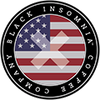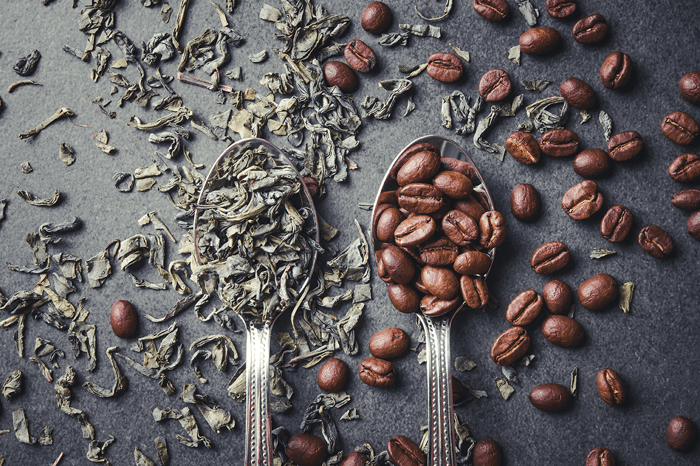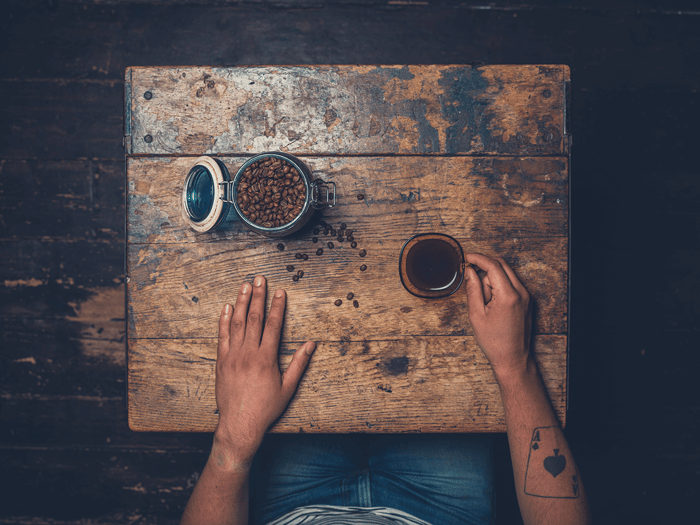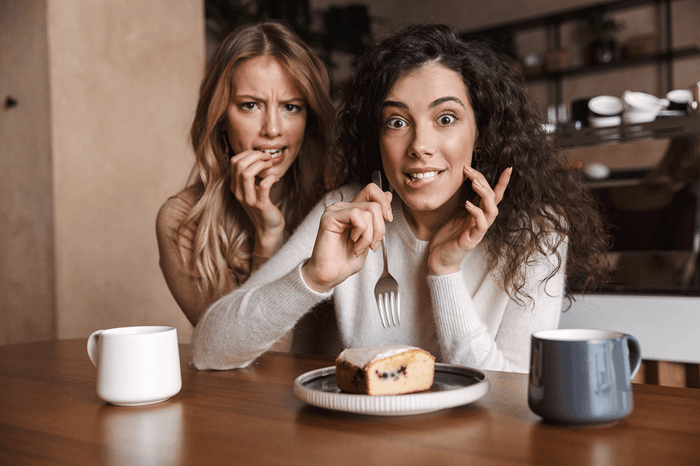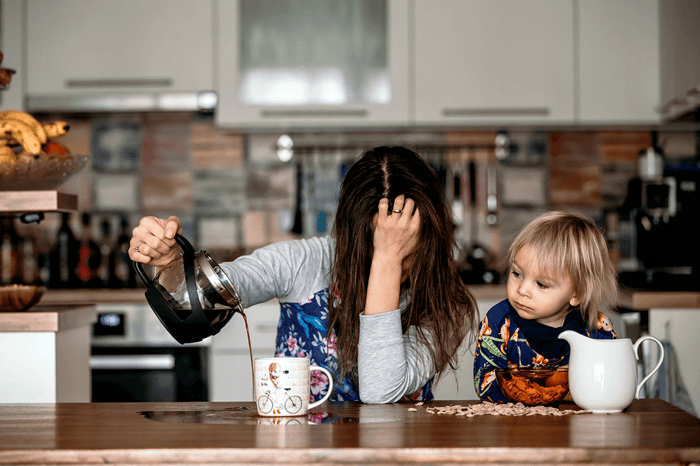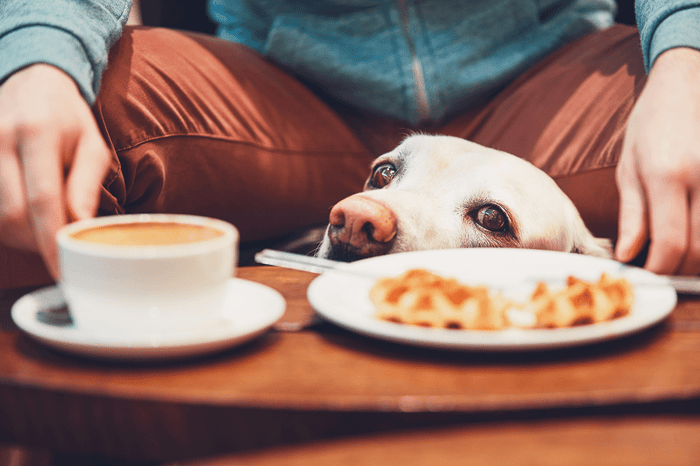
The total amount of caffeine in coffee versus tea varies significantly due to many factors. You know… how they’re prepared, type, origins, yada yada yada—but I know this isn’t the answer you came here to hear.
In order to provide this information, I’m going to be using the word “typically.” A lot. In fact, wherever I don’t use it, just go ahead and mentally insert it in the sentence. So with that out of the way, let’s look at the typical differences in caffeine content between tea and coffee!
Beans vs Leaves
Tea leaves typically contain 3.5% caffeine.
Coffee beans typically contain 1.1 - 2.2% caffeine.
Surprising, right?
So why does coffee have more caffeine than tea? It all has to do with differences in the brewing processes between both beverages.
Coffee brewing typically uses hotter water, which results in greater extraction of caffeine.
And unless you’re trying to make something that tastes really, really bad, brewing coffee uses more coffee beans than the number of tea leaves that are used when brewing tea.
So therefore, a cup of brewed coffee generally has more caffeine than a cup of brewed tea.
The amount of caffeine varies widely across different varieties (and preparation methods) of coffee and tea.
When it comes to teas, yerba mate and black teas pack the most caffeine. For coffee, espresso generally has the highest caffeine content.
Exactly How Much Caffeine is in Tea?
Some herbal teas like peppermint, chamomile, and ginger and peppermint contain no caffeine at all.
That’s because some herbal teas aren’t made from the same leaves (camellia sinensis) as most other kinds of tea, and they’re often made from things that generally don’t contain caffeine like flowers, seeds, roots.
Other herbal teas may contain some caffeine, but usually not enough for you to notice.
Caffeine per Cup (approximate)
Black tea – 47 - 90mg
Yerba mate – 85mg
Oolong tea – 37 - 55mg
Green tea – 20 - 45mg
Matcha green tea – ~35mg
White tea – 15 - 30mg
Herbal tea – 0 - 12mg*
Decaf tea – 0 - 2mg
It might surprise you to see that “decaf” tea usually still contains caffeine, just in extremely low amounts. By law, decaf tea is required to have 2.5% or less of its original caffeine content, so it’s not really any amount to worry about if you’re trying to avoid caffeine for whatever reason.
The trace amounts of caffeine in decaf tea typically are somewhere around 0 - 2mg per cup—not enough to lose sleep over.
Exactly How Much Caffeine is in Coffee?
Again, keep in mind that the amount of caffeine in a serving of coffee (or tea) varies based on too many factors—there are just too many combinations (maybe we’ll do this in the future). So take these numbers as a rough, general guide.
Caffeine per Serving (approximate)
Espresso – 64mg per 1oz
Brewed coffee – 96mg per 8oz
Instant coffee – 62mg per 8oz
Decaf brewed coffee – ~2mg per 8oz
Decaf espresso – ~0mg per 1oz
Decaf instant coffee – ~2mg per 8oz
(Learn about Extreme Caffeine Coffee)
There is a marginal difference in caffeine content between lighter and darker roasts, with darker roasts containing less caffeine, and lighter roasts containing more caffeine.
Cold brew coffee also contains more caffeine than coffee brewed with hot water methods.
Looking for the coffee with the highest caffeine content? Check out Black Insomnia’s extreme caffeine coffees and our new ready to drink cold brew.
